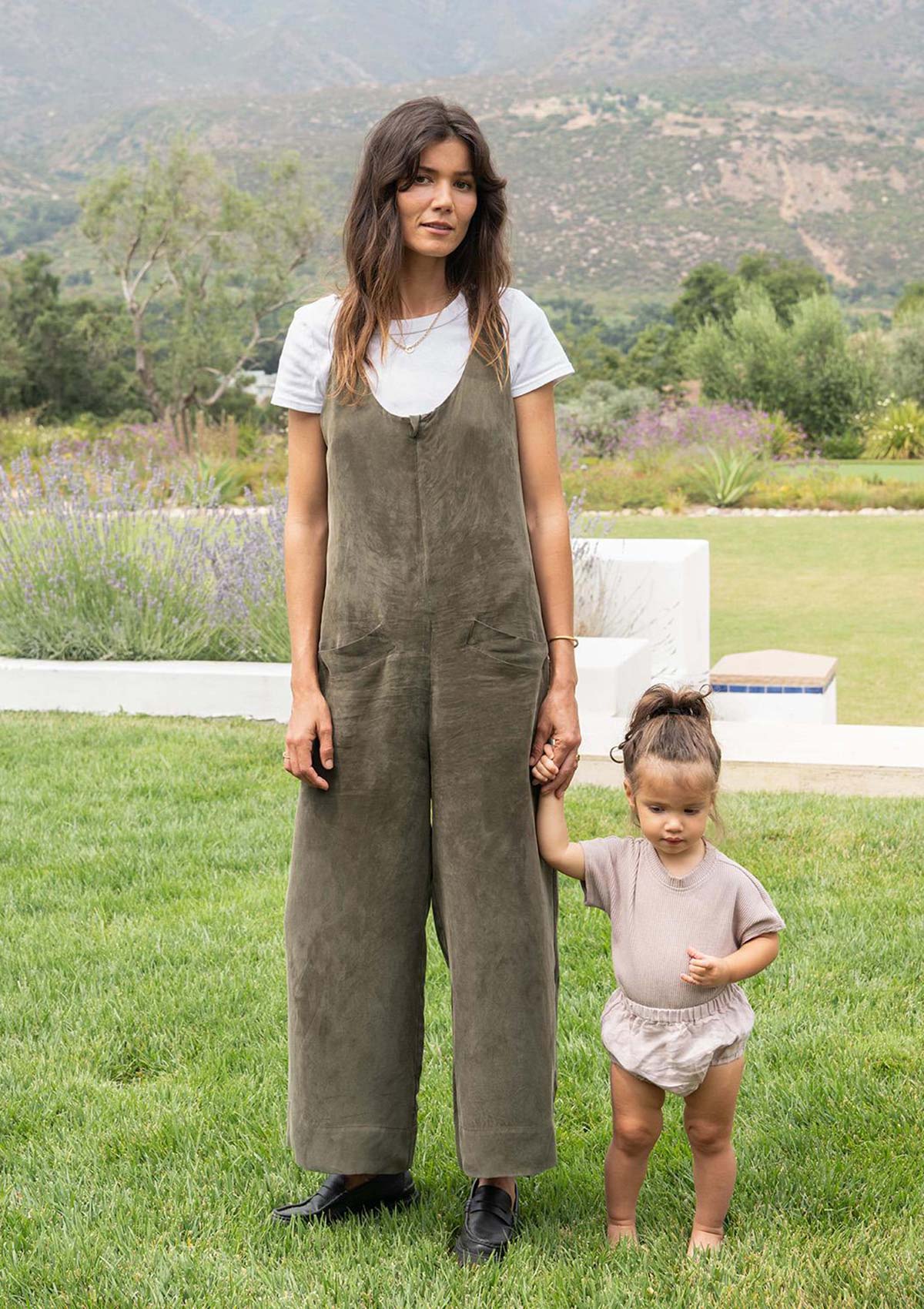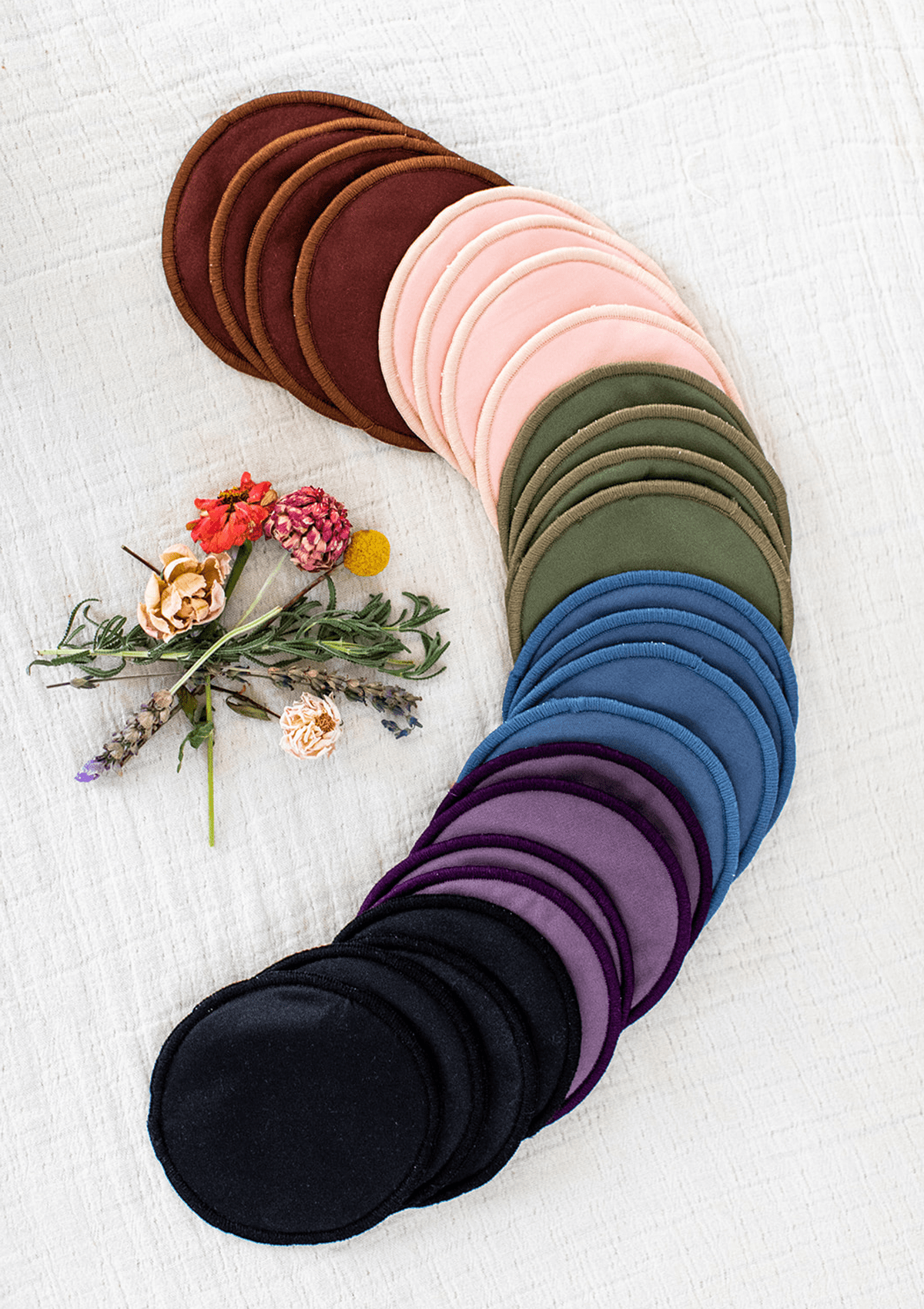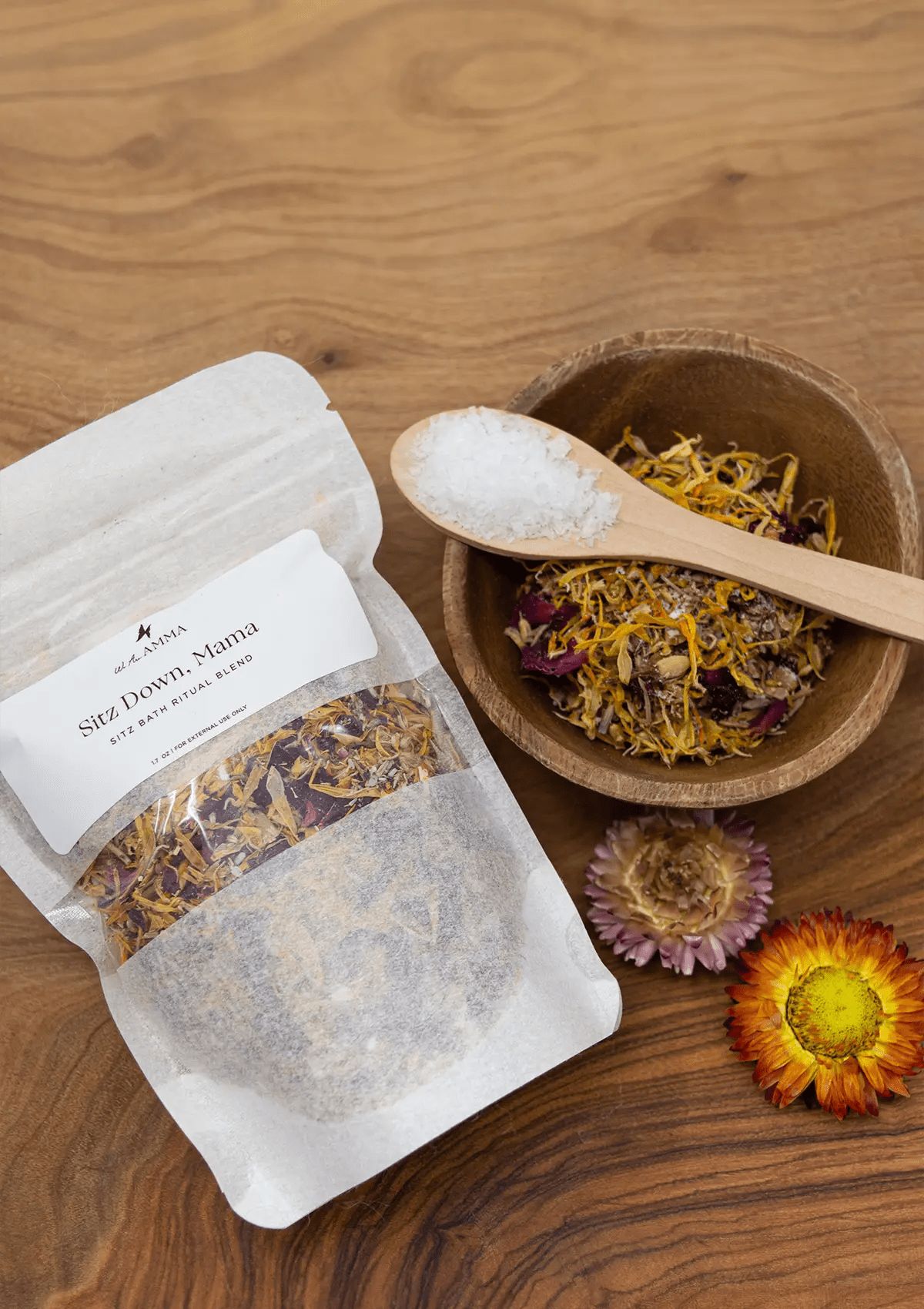
7 postpartum tips & tricks for mama + baby (Hint: they involve lots of cuddles!)
Mama...Seriously though...
You've just gone through one of the most intense experiences of your life and now you have to keep a tiny and extremely helpless human being alive (on top of managing your own healing and major life changes)...on bordering-on-torture-level lack of sleep.
While we can't predict everything you'll be figuring out as a new mama, we DO have some tips & tricks for navigating postpartum for you and your baby. Together with renowned doula Ivy Joeva, we've put together some superhero mama hacks to help you and your new family member bond.
1. Check out NEW Mama Recommended Resources:
- Wonder Weeks → app provides insight into your baby’s “leaps,” helps you track milestones, and gives ideas on how to support/stimulate your kiddo’s development (get the companion book here).
- 7 Swaddles-Sleep Solutions for Every Stage → this website from ABC Doula Services teaches 7 ways to safely swaddle your newborn...no more escape artists!
- Nursing apps → find your favorite; super handy for timing/tracking feeds as well as other baby-related info.
- Harvey Karp’s 5 S’s (an oldie but such a goodie) → “baby whisperer” comes through with some amazing techniques for calming your fussy babe.
2. SET UP NURSING “STATIONS”
If you choose to breastfeed, you’ll be spending a lot of time (and nutrients) nursing... creating nursing stations around the house will help these sessions feel easier and assist you in staying happy and healthy.
Here are a few suggestions on how to set up a nursing station:
- A container for water or herbal tea
- Snacks - Try dried fruit (look for no-sugar-added varieties) and nuts for an ideal protein/carb blend
- Lactation cookies (want to make your own? Check out our lactation treat ideas!)
- Granola bars
- Nursing Pads
- Nipple butter
- Haakaa (to catch letdown from the other side)
- Burp cloths
- Phone Charger
- Lip balm (can be used as lip balm)
AMMA Mama Pro tip → Put your supplies in a cute basket or bin...it's an easy way to feel pampered.
3. SLEEP WHEN BABY SLEEPS
Here's what NOT to do when baby sleeps:
- Chores (there will be a never-ending list, but now is not the time to tackle them...see our advice about delegating)
- Catch up on emails/work
- ANYTHING except for resting...it’s the key to healing faster and thriving!
AMMA Mama Pro tip → Master the art of napping with:
- Eye masks
- Blackout shades/curtains (i've usd a pair I bought 8+ years ago for travel all the time!)
- Comfortable cozy clothing
4. SPEND TIME OUTSIDE
- Supports both yours and baby's circadian rhythms
- Increases Vitamin D levels (an important nutrient for immunity and hormonal health)
- Enhances your mood
AMMA Mama Pro tip → In addition to venturing outside, allow as much natural light as possible into the house during the day.
5. WIND DOWN AT NIGHT
- Keep lighting as dim as safely possible and favor candlelight and/or red lights to support quality sleep.
- To make the transition to evenings easier consider a postpartum doula for witching hour shifts to help you (and baby) catch some much-needed slumber.
6. KEEP BABY CLOSE
“This is a critical bonding time for mom and baby, when baby's "limbic imprint," is forming which will inform their ability to experience healthy attachment and establish the patterns they will continue to display in relationships into adulthood. Pre and perinatal psychologists say this window after birth, along with the pregnancy and birth itself, are actually the most formative in terms of the emotional and relational development of the child. So keeping baby as close as possible, ideally in mom's arms or on her body (in a wrap or sling), sleeping next to your baby whenever possible, and taking the first several weeks to be home with them is crucial for establishing this bond. Of course, this isn't possible in every family so know that whatever you're able to do helps nurture your connection with baby.” (Ivy Joeva, doula)
Benefits of skin-to-skin contact:
- Helps regulate baby’s heartbeat
- Supports a healthy breastfeeding relationship
- Increases milk supply
- Helps with overall emotional well being for mama and baby
AMMA Mama Pro tip → If your little is in a carrier or laying on your chest this counts as tummy time as well!
7. UNDERSTAND YOUR NEW NORMAL
Here are a few things to know:
- It will change daily...but don’t worry and keep reading :)
- Babies tend to cry more in the 4th trimester than any other point in their development, usually peaking around 5-6 weeks...you (and they) will get through it!
- You cannot spoil your baby. We’re gonna say it again, because it’s that important...you cannot spoil your baby! Soothe them when they cry, feed on demand, let them sleep when they’re sleepy, and by all means snuggle them and hold them as much as you can.
- Routine is not the same as schedule; routines can be super helpful (i.e. the order of things or what components make up something) but the timing of things might shift throughout your baby's first year...this is ok! Consistency is the key, and can help you keep your sanity during growth spurts, wonder weeks, teething, cluster feedings and more.
A few ideas to help you with this NEW change:
- Join a Facebook group for mamas with new babies.
- Join a local infant class with other new mamas.
- Connect with a friend who just had a baby (create a supportive text thread).
- Check out our Instagram for advice and camaraderie.
- Express your needs; it can be hard for your partner (or anyone helping you) to know how to support you or understand exactly what you need, so don’t be afraid to ask for specific help.
- Cut down on chores: get groceries delivered, have friends make meals, hire a short-term cleaning service or dog-walker...de-le-gate!
- A postpartum doula can provide informed evidence-based support, assist with household tasks, make meals, help with breastfeeding, wash pump parts...the list goes on! Studies also show that postpartum doulas can reduce the frequency and severity of perinatal mood and anxiety disorders.
For more insightful advice and support, check out Ivy Joeva’s postpartum care page here.

































